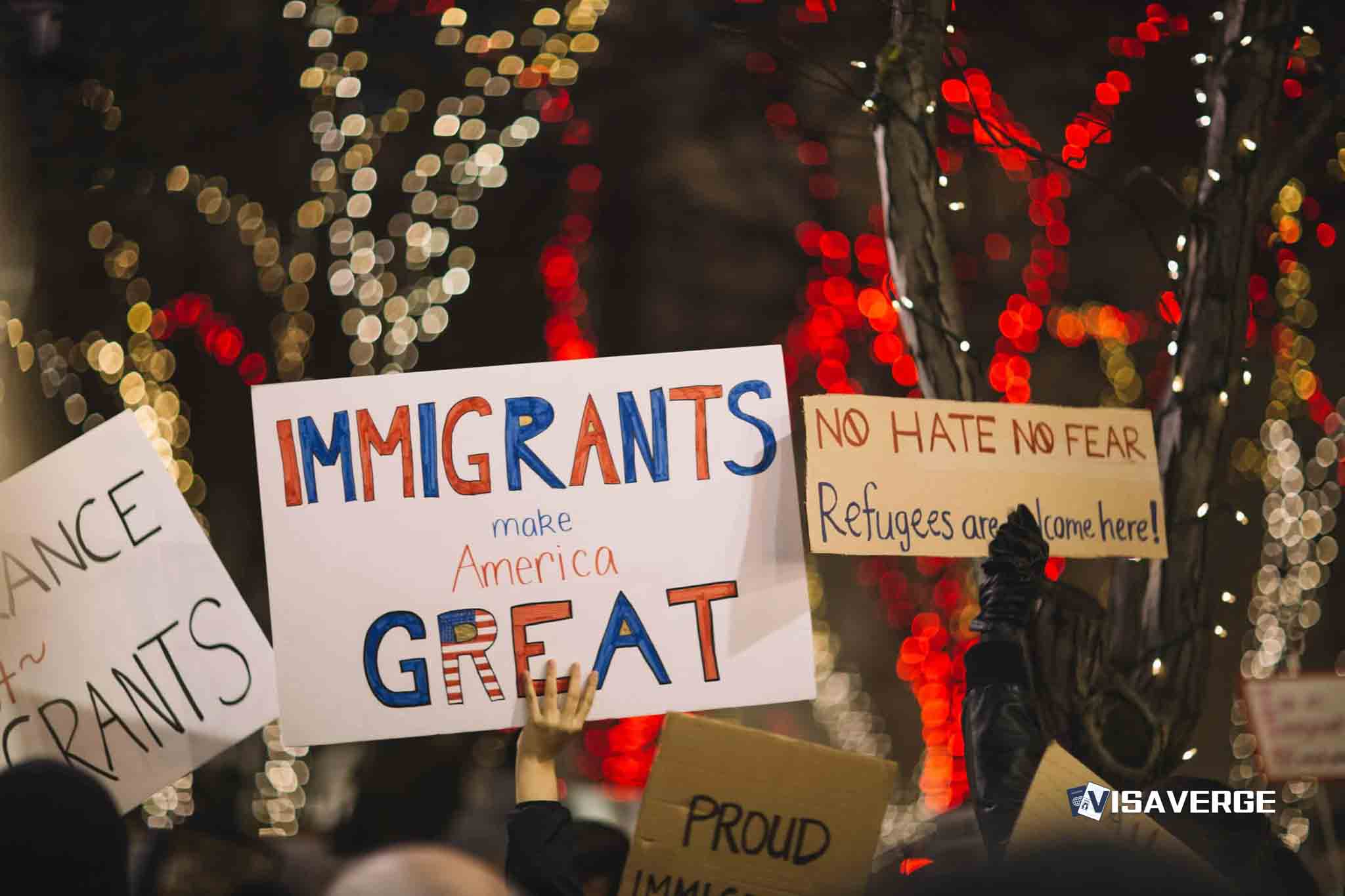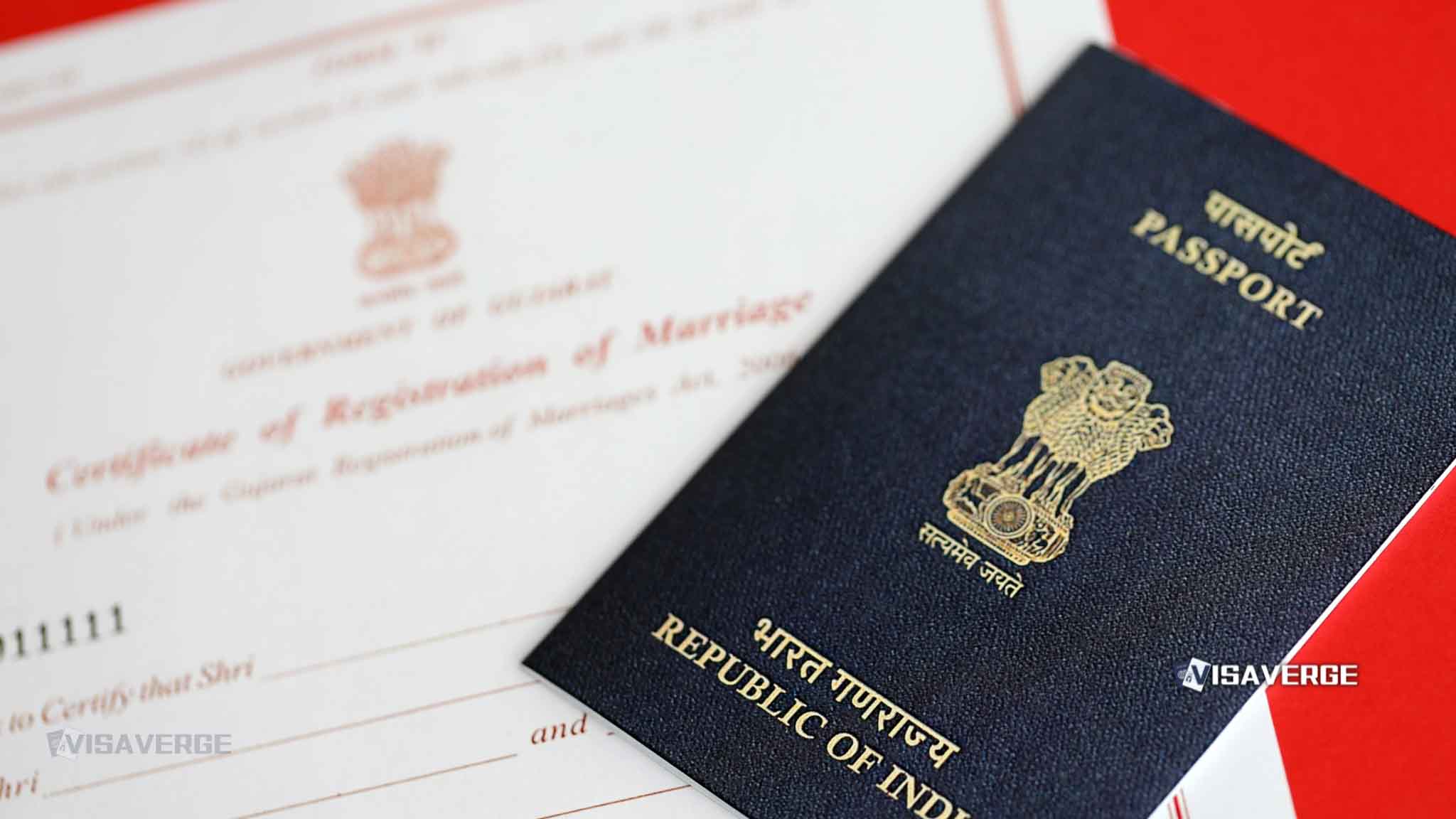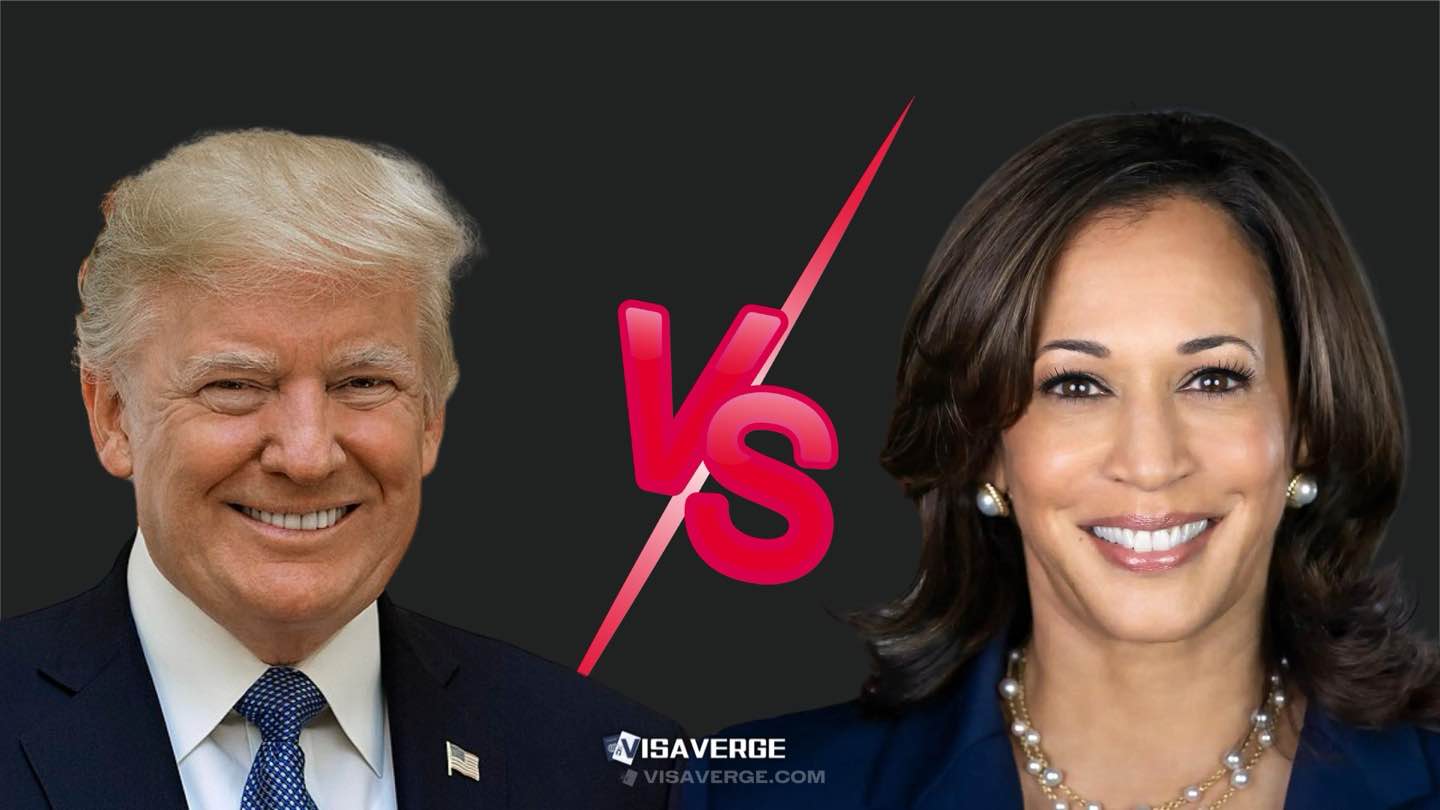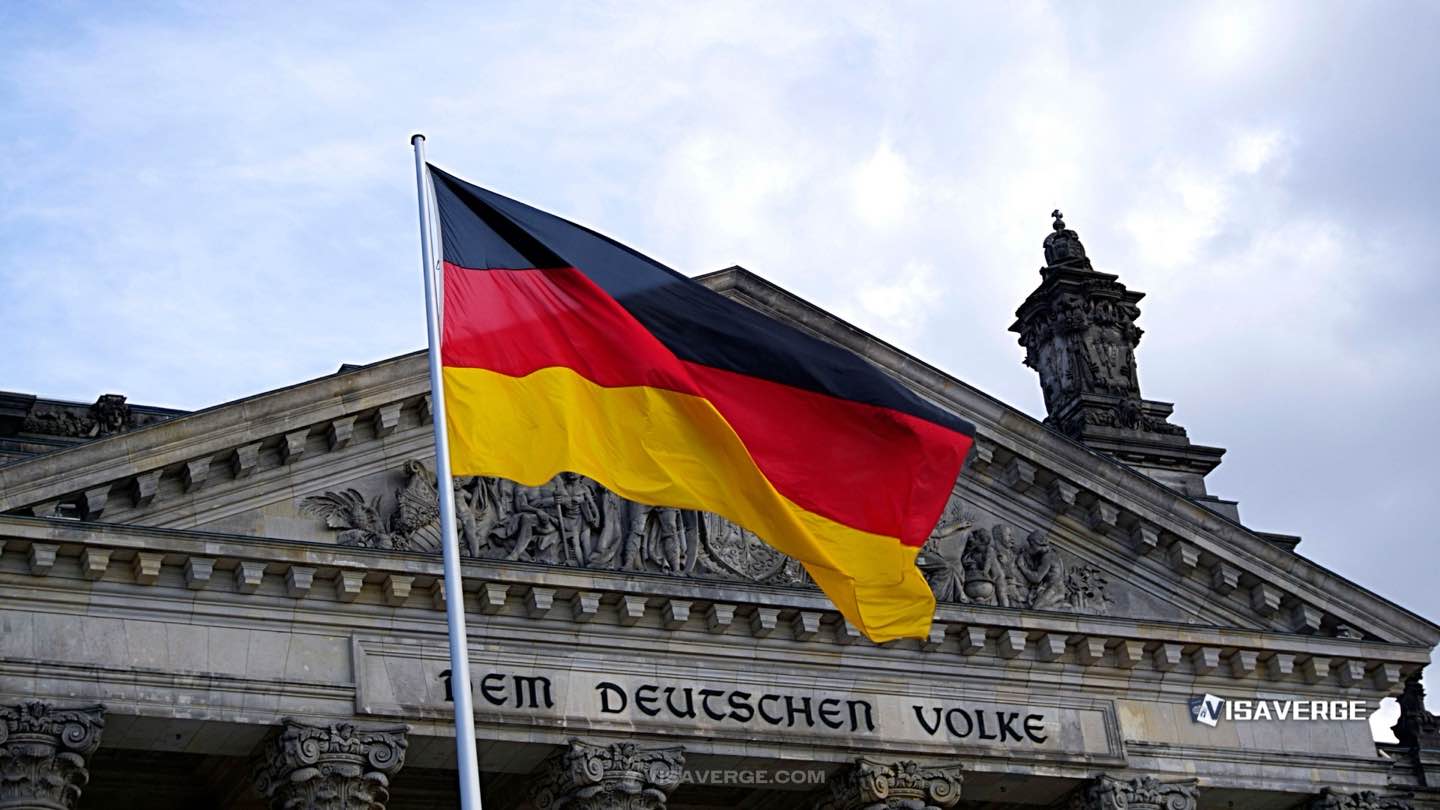Key Takeaways
• Stephen Colbert mocked the DHS Citizenship Reality Show, comparing it to ‘The Hunger Games’ on national TV.
• DHS confirmed it has not endorsed or approved Rob Worsoff’s proposed show granting U.S. citizenship as a prize.
• Critics worry turning citizenship into entertainment trivializes real struggles and question the ethics of such television concepts.
When television producer Rob Worsoff first pitched his idea for a Department of Homeland Security (DHS) Citizenship Reality Show, it was clear he wanted to catch people’s attention. Called “The American,” his show would feature immigrants competing in challenges inspired by American culture with the biggest prize of all: U.S. citizenship. Worsoff, already known for popular programs like Duck Dynasty, said the aim was to “celebrate the immigration process” and start a national discussion about what it means to be American. The pitch, however, quickly caught the eye—and the sharp wit—of Stephen Colbert, who is often known for using humor to call out what he sees as troubling trends.
From the moment Stephen Colbert heard about the DHS Citizenship Reality Show concept, he used his late-night platform to deliver biting commentary. In a segment watched by many, Colbert compared Worsoff’s idea to a real-life version of The Hunger Games, a well-known story where people must compete in tough and dramatic events to survive. He joked, “I know that sounds dystopian, but to be fair, that’s how citizenship has always worked… my great-grandfather actually won the first season of So You Think You Can Dig the Erie Canal.” Using this type of joke, Colbert played on the dark humor of making a contest out of something as serious as citizenship.

As the conversation continued, Colbert refused to let Worsoff’s defense go unchallenged. Worsoff insisted his show would not be like The Hunger Games. He argued that anyone with “half a brain” could see the difference. Colbert, however, shot back, “And anyone who thought about it for six seconds would say, ‘Oh wait, no, this is The Hunger Games’.” The laughter in the studio made it clear that Colbert’s audience saw his point. The idea of people battling for citizenship struck a nerve—not just for the way it turned a personal journey into a game, but because it raised ethical questions about entertainment.
Worsoff’s Defense: Celebration or Spectacle?
Rob Worsoff did not hold back in defending his idea. As a Canadian-born immigrant himself, he said the show would build up immigrants as heroes, not turn them into objects of ridicule. The plan, as he described it, was to create state-by-state challenges that touched on American culture—like making New York-style pizza or digging for gold in California. Worsoff said there would be no risk of being sent home or punished if a contestant lost a challenge. “Nobody leaves because they lose,” he explained. “I wanted to show how hard it is, how every immigrant’s journey is different.”
Worsoff’s defense centered on the thought that the show could shed light on the many stories that make up the immigrant journey in a way that American viewers would pay attention to. He saw the show as a chance for the country to think about citizenship, immigration policies, and the history that has drawn people to the United States 🇺🇸 for generations.
Still, Stephen Colbert found plenty to joke about. When he found out Worsoff was originally from Canada 🇨🇦, Colbert quipped, “Well, I guess some immigrants really do make this country… worse off,” twisting Worsoff’s name to make his point. This joke drew attention to the risk that a show like this could make light of serious issues instead of respecting them.
Colbert also poked fun at the idea of state challenges. Imagining a task set in Nebraska, he said, “If we’re in Nebraska we’re doing… Nebraska things—which is like… being corn? I don’t know; I wasn’t born here.” In doing so, Colbert showed that these state-based contests risk missing the point of what makes the immigration process complex and meaningful.
Official Response and the Role of the DHS
After the media attention grew, the Department of Homeland Security weighed in to clear up confusion about where the idea stood. DHS officials confirmed that they get many proposals from TV producers each year—some for documentaries about border security or immigration, others for entertainment purposes. However, the idea for “The American” did not have official approval. According to the agency, no one at DHS, including top leaders like Secretary Kristi Noem, had backed or endorsed the show at any level. The idea was in the same stage as dozens of other pitches: submitted, reviewed, but neither accepted nor turned down.
This was an important point for critics. If the government were to support a show where immigrants had to compete for citizenship, it could send a message about the value and seriousness of citizenship itself. The fact that no approval had been given as of now was likely a relief to some—and clearly noted by the media.
Criticism from Many Sides
When Stephen Colbert and other voices like the hosts of The View drew attention to the DHS Citizenship Reality Show idea, criticism came quickly. Many found the idea troubling. They argued that putting the entire immigration journey on television, where people would win or lose a spot in the United States 🇺🇸, risked turning real-life struggles into a spectacle for entertainment.
On The View, hosts said the concept sounded “bizarre” and worried that it would make light of difficulties many face. The idea that a television contest could offer citizenship—something that usually comes after years of paperwork, interviews, and tests—struck critics as both unfair and insensitive. Some also worried it could encourage people to try to win their place in America through TV instead of following the rules set out under existing immigration law.
This sentiment was echoed by many who felt the proposal, even if well-meaning, could turn people’s private dreams and hard work into something meant for TV ratings, rather than giving those stories the respect they deserve.
When it came to the format, critics also raised another point: many Americans themselves struggle with the citizenship process. Statistics were often cited showing just one-third of American-born citizens can pass the U.S. citizenship test, which covers history, laws, and rights. By making this a contest for newcomers, some felt the show would call out would-be citizens, while ignoring the gaps in knowledge among those already living in the country.
Citizenship as Entertainment: Deeper Questions Raised
The heart of the debate is about more than just a TV show. It is about what citizenship means, how people are included or left out, and whether turning the journey to American citizenship into entertainment cheapens the process. Stephen Colbert used humor as a way to press these points. By drawing comparisons to dystopian stories where people have to compete for survival, he reminded viewers that getting citizenship is about dignity, sacrifice, and hard work—not popularity or performance.
Worsoff, to his credit, continued to argue that his show was meant to honor that spirit, not mock it. He stood by the claim that showing American culture, history, and the many faces of immigrants would make other Americans think more deeply about their own roots. But even with these claims, many felt uncomfortable with the idea of awarding a U.S. passport as a game prize.
Government’s Usual Path for Citizenship
People who want to become citizens of the United States 🇺🇸 usually do so through a well-defined and official process. Applicants must live in the country for a set number of years, hold a green card, read and write basic English, and pass a test on U.S. history and laws. Extensive paperwork, like the Form N-400, Application for Naturalization, is standard and must be reviewed by U.S. Citizenship and Immigration Services (USCIS).
For many, this process is not just a set of rules. It’s a journey filled with costs, paperwork, interviews, and sometimes fear. For this reason, adding a public competition layer struck critics as odd or even disrespectful.
The proposal, as reported by VisaVerge.com, has not moved past the suggestion stage. DHS reviews many proposals each year, mostly from entertainment groups hoping to work with the agency. Each one is looked at under strict rules to make sure all discussions about citizenship follow the law and keep respect for the journey of every applicant.
A Table of the Debate
To help readers see both sides, here is a simple table that lays out the main points raised by Rob Worsoff and Stephen Colbert:
| Aspect | Rob Worsoff’s View | Stephen Colbert’s Critique |
|---|---|---|
| Purpose | Celebrate immigrants and U.S. culture | Makes a game of hardship; is dystopian |
| Show Format | Fun state-based challenges | Oversimplifies; risks being tone-deaf |
| Consequences | Winner gets citizenship, no deportation | Still uses loss/failure for TV drama |
| Official Backing | Claimed DHS interest | DHS denied any formal support |
This side-by-side format makes it easy to see where the two disagree, and where the heart of the controversy lies.
What Happens Next?
As of now, Worsoff’s DHS Citizenship Reality Show pitch sits on the sidelines. The government has not said yes or no, and according to official statements, top leaders like Secretary Kristi Noem have not been involved. The discussion, however, rages on in the media and in homes across the country.
The biggest lessons from the debate are about values. Some people see such proposals as a chance to make Americans more aware of what newcomers face. Others fear that reality TV’s need for excitement and conflict would erase the dignity of those very people. And plenty believe that the process of becoming American should not be subject to votes, eliminations, or popularity contests.
Conversation Continues
No matter what happens with “The American,” the idea has sparked a strong reaction. From Stephen Colbert’s pointed jokes to deep conversations among viewers and immigrant advocates, people are thinking harder about what it really means to belong. By bringing humor to the debate, Colbert made some serious points about fairness, respect, and the true weight of citizenship.
As these conversations continue, government leaders and members of the public will need to decide: Is there ever a good time or way to mix entertainment with such an important, personal process? Can a show like this ever respect the real sacrifices of those who apply for citizenship? Or does the very nature of a TV competition trivialize something that millions take very seriously?
If you would like to learn more about how the official citizenship process works—including the citizenship test and application requirements—USCIS provides clear and up-to-date resources. These explain not only who can apply for U.S. citizenship, but also what steps you have to complete, and what help is available if you need it.
Final Thoughts
Stephen Colbert’s critique of Rob Worsoff’s pitch for the DHS Citizenship Reality Show has done more than just provide laughs. It has shined a light on how easily the struggles and dreams of immigrants can slip into the world of television, where the line between respect and ridicule can blur. The debate itself shows how important it is for both policymakers and TV producers to think about the message they send and the impact these ideas have.
As reported by VisaVerge.com, the U.S. government takes care to make sure all discussions about citizenship stay grounded in law and fairness. Whether the current proposal fades away or returns in a new form, one thing is clear: immigration will always be a subject that stirs deep emotions and deserves careful, thoughtful treatment.
Every person’s journey to citizenship is unique. Turning those journeys into entertainment for the masses is a choice that will keep drawing questions, criticism, and maybe even a few late-night jokes for years to come.
Learn Today
DHS → Department of Homeland Security, a U.S. federal agency responsible for public security and immigration enforcement.
Citizenship Reality Show → A proposed television program where immigrants compete in challenges for a chance to win U.S. citizenship.
Naturalization → The legal process by which a non-citizen becomes a citizen of a country, typically involving residency and tests.
USCIS → U.S. Citizenship and Immigration Services, the agency managing naturalization and citizenship applications within the United States.
The Hunger Games → A dystopian novel and film series referenced to highlight the potentially exploitative aspect of televised competitions.
This Article in a Nutshell
A proposed DHS Citizenship Reality Show, ‘The American,’ would award U.S. citizenship through televised challenges. Stephen Colbert criticized this idea, likening it to ‘The Hunger Games.’ Officials confirmed no DHS approval. Critics and advocates fear the show could undermine the seriousness and dignity of the real citizenship process.
— By VisaVerge.com
Read more:
• First self-deportation flight under new DHS program departs Houston
• DHS asks National Guard to help with immigration roundups across US
• Trump Administration Pushes DHS to Grab H-1B Visa Biometrics
• DHS weighs reality television show awarding U.S. citizenship to winner
• DHS Secretary Noem challenges Illinois Gov. Pritzker on sanctuary policies













